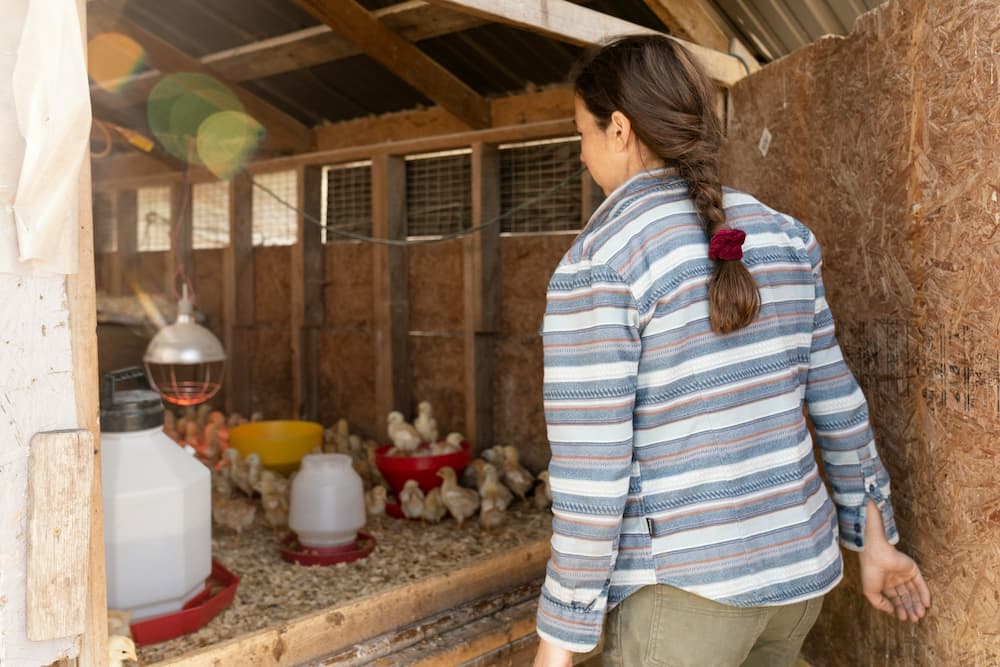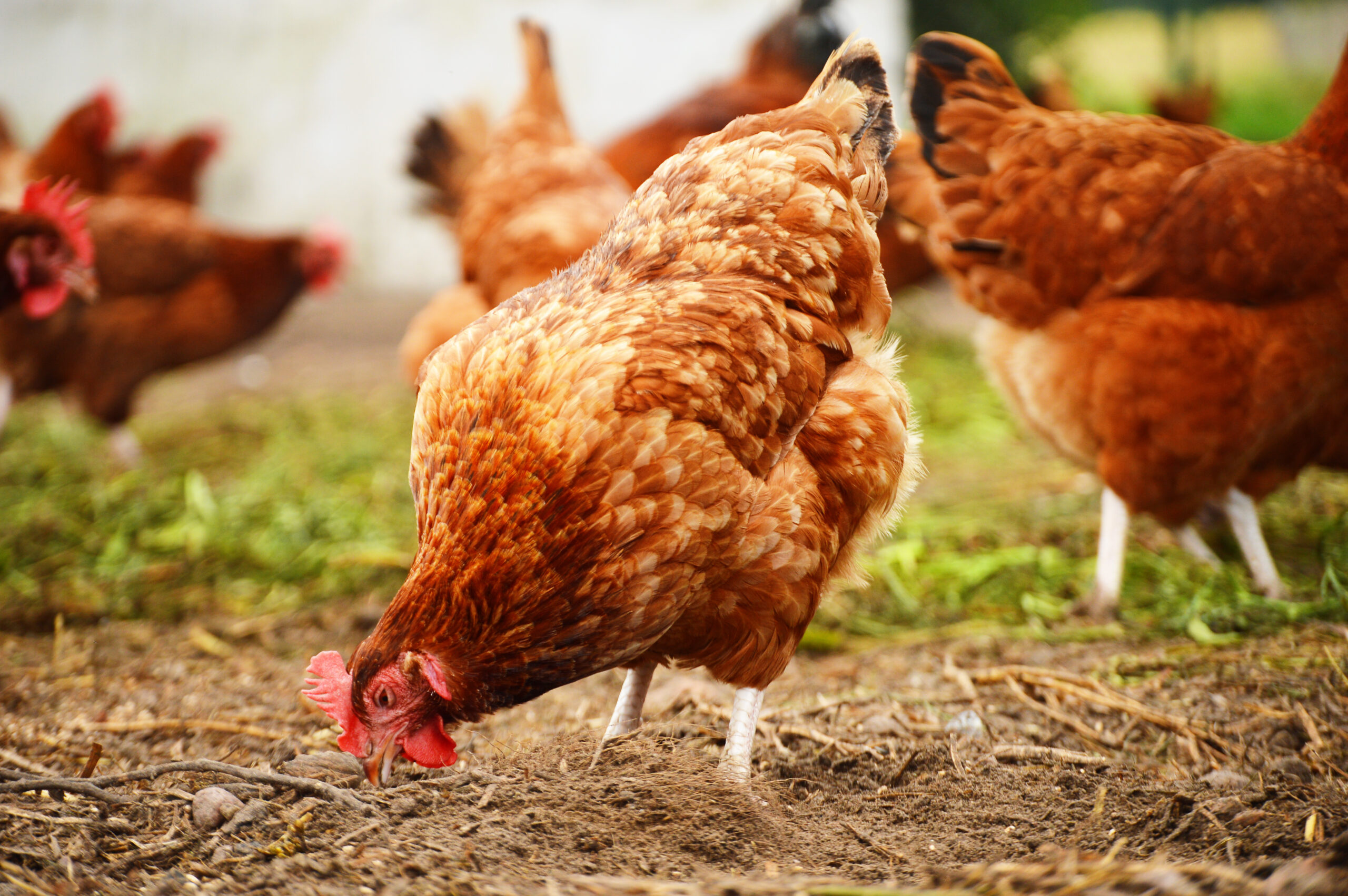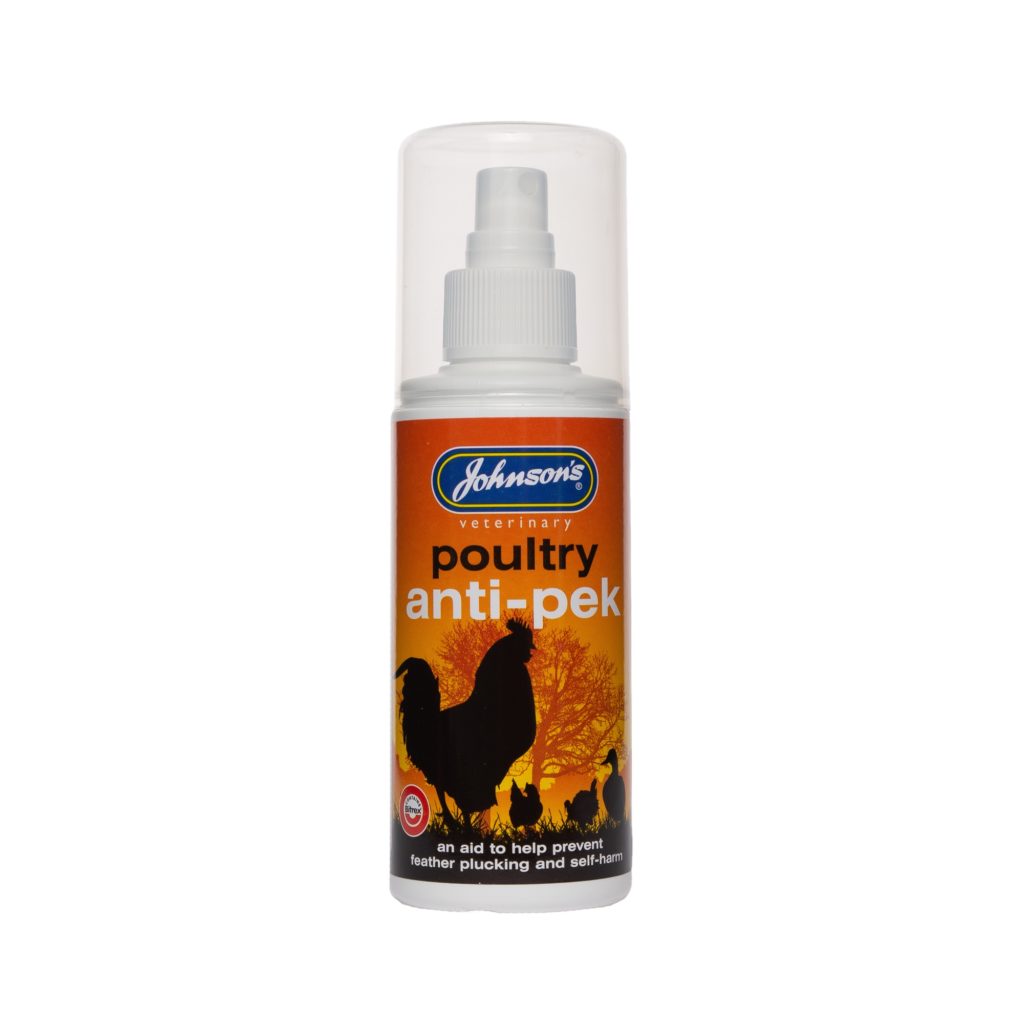If you are new to keeping hens or poultry, you may be worrying about the icy temperatures that have hit the UK all through this month, and wondering if you are doing enough to protect your hens from the cold? Whether you are new to keeping hens or a seasoned poulterer, we have compiled some of our top tips for looking after hens in winter, so that you feel confident that your hens are safe and warm for years to come!
Keep them warm & cosy in their coop
Hens and chickens are known to be quite hardy birds, and most birds will cope well with a change in temperature as they will naturally want to spend more time in their coop than in the outdoors. However, if they aren’t kept warm enough your hens may stop producing eggs, whilst weaker members of the flock will be more prone to illness.
Minimise drafts by covering holes in your coop with plywood. If your coop is new, you may not need to do this step, however if it is over 5 years old then it is likely that parts of your coop may be beginning to deteriorate from wood rot and need repairing. At night you can also add extra warmth by covering your hen house with an old rug, blankets or bubble wrap. Make sure that your coop is safe and secure, as during winter foxes are bolder with trying to steal your hens.
You DON’T need to put a heater in your chicken coop. Although some farmers and poultry keepers are known to use heaters and oil lamps during the colder months, not only do heaters risk a fire hazard (especially with all that dry bedding) but it is unnecessary as hens are known to huddle together for warmth.

Keep your coop ventilated
During the winter it is a good idea to feed your hens extra corn in the afternoon, as the digestion will keep them warmer overnight. Feeding them before nightfall also ensures that their food is gone before wildlife – such as rats, mice and foxes – can come and try to take it for themselves.
You can also warm up your hens’ food and give them extra comfort by mixing their crumble or pellets with warm water, and further fortify their health during the winter months with an additional supplement. Our Poultry Tonic is a multi-vitamin and mineral supplement that can be easily added to water or food and contributes towards your hen’s health and vitality.
Ensure that your chickens always have access to fresh water. If you want to give your hens extra warmth, it is perfectly acceptable to fill up their drinkers with warm water during the day, especially during icy temperatures, as this helps prevent their water from freezing.
Protect against frostbite
In extremely cold temperatures, hens can be prone to frostbite – especially in poultry breeds with large combs and wattles. One way to prevent it (in addition to following the other tips in this guide) is to apply petroleum jelly (like Vaseline) to their combs and wattles.
Frostbite usually starts out with grey skin around the affected area, whereas frostbitten feet will be dark red. Keep an eye on your hens for any skin colour changes and take your hen to a vet immediately if the skin turns black.
Despite frostbite being considered a serious condition in humans, it’s not the end of the world if your hens get it – though you may want to ensure that other hens do not peck at the affected hen whilst the frostbite is healing (which can take around 4-6 weeks). Our Poultry Anti-Pek Spray provide an effective solution for preventing hens from pecking themselves or at each other – whether it is during winter or any other season.
Use deep litter technique
The deep litter technique involves layering wood shavings over the floor of your chicken coop and, instead of cleaning or removing hen waste, stirring the bedding with a light rake and regularly topping up with more wood shavings.
Over time, the litter will combine with your hen’s waste to form a compost layer that not only helps prevent lice and mite infestations but will give your hens extra warmth during the winter.
Should it be the case that your coop does get infested with bugs though, don’t worry – we have the solution! Our Poultry Mite & Lice Powder can be used on hens and in their coops to treat bird parasites.
Ensure their roost is a good height off-ground
Hens will naturally roost together to keep themselves warm, therefore it is important that you create areas in your coop where they can sleep together.
Make sure that your roosts are raised at least 2 or 3 feet off the cold ground and that there is enough room for all of them to roost together. If you aren’t sure whether you have created enough room for all of them, check on your hens during the night with a torch. If there are still hens on the ground, this means that there is not enough room for all of them to roost.
So there you have it – our top tips for looking after hens in winter! We hope you found some of this information useful, and if you are a poultry keeper with some additional tips do get in touch and let us know your suggestions, as we love being able to hear the wisdom of our knowledgeable customers!






